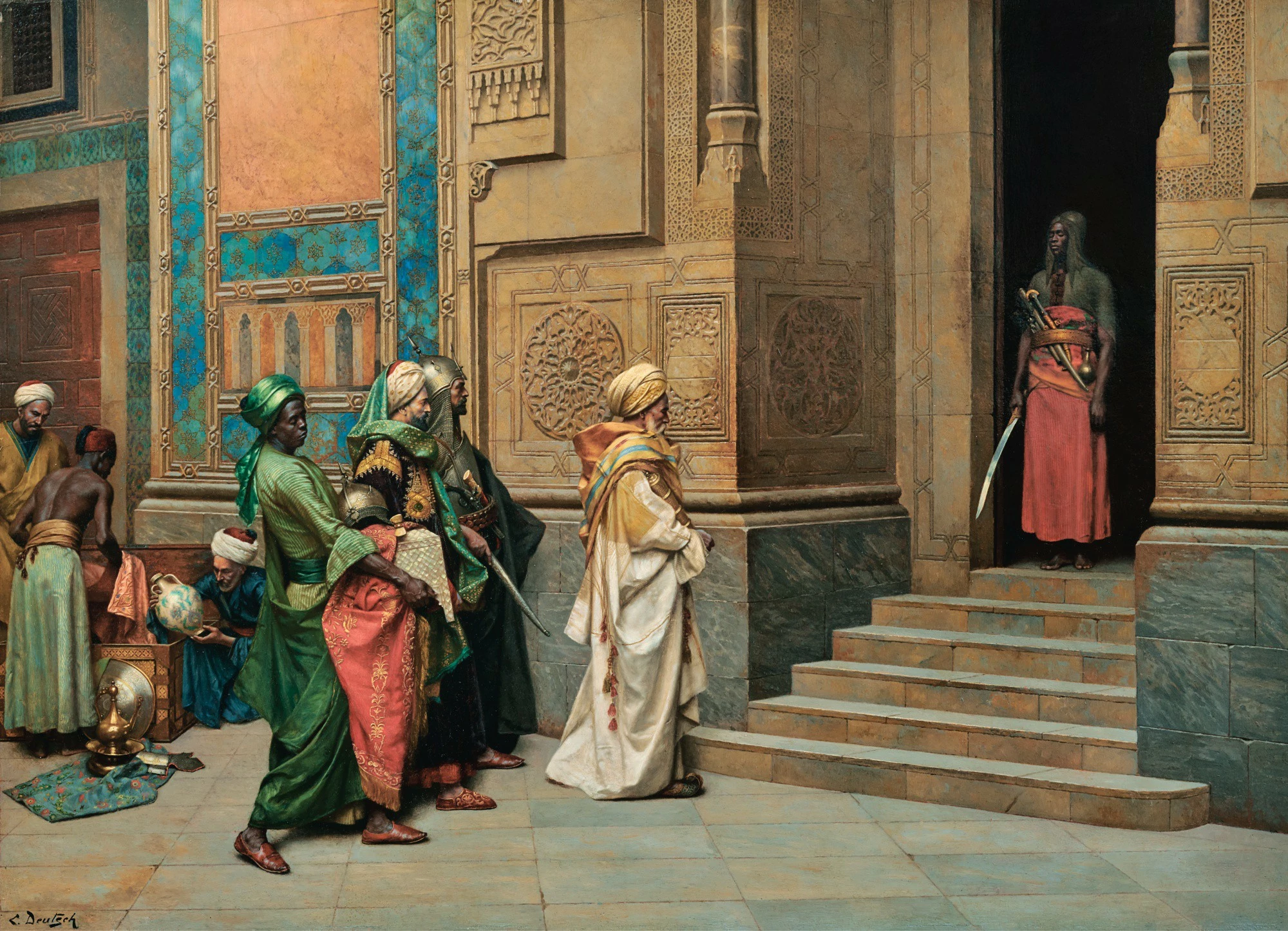Ludwig Deutsch
Capturing details from 2000 miles away


The details of Ludwig Deutsch’s life are relatively sparse, an odd contrast to his work, where detail is the central character. Deutsch was born in Austria, but his work fixates on the elaborate textiles, ornamentation and architecture of the Islamic-Egyptian world at the end of the 19th century.
Deutsch was an academic artist of the classic European schools, first trained in the Academy of Fine Arts in Vienna under Anselm Feuerbach from 1872 to 1875, and later by Leopold Carl Müller in Paris. The academic tradition was already an old one by the late 1800s, built on generations of representational technique and dominated by European history painting, portraiture and scenes from Greek and Roman myth.
In Paris, Deutsch fell in with Rudolf Ernst, Jean Baptiste Discart and Arthur von Ferraris, who were exploring the relatively new subgenre of academicism called Orientalism. Fueled by the European colonization of Northern Africa and the Middle East and the relative ease of international travel by the middle class, artists were increasingly inspired by the ‘exotic’ culture and aesthetics of these far-away places.
Deutsch jumped into Orientalism with enthusiasm, painting his first works in the theme at age 26, likely inspired by popular works by Jean-Léon Gérôme and Georg Ebers’ recent book, Egypt: Descriptive, Historical, and Picturesque. Four years later, in 1885, Deutsch made his first of many journeys to Egypt, where he amassed a huge collection of souvenirs: ewers, tapestries, and furniture. Along with a library-worth of photographs of the Cairo region, ghostly collodion prints from the studios of G. Lékégian and others, Deutsch filled his Paris studio at 11 rue Navarin with the ingredients for an orientalist artwork factory. On his return to Paris, he got busy.
Deutsch’s work is undeniably striking. His academic training and obsessive dedication to detail give his paintings a near-photographic realism, which he applies to dignified, contemplative figures—a far cry from the excessive, eroticized fantasies of earlier Orientalist works, like Girodet’s Revolt in Cairo or Delacroix’s Death of Sardanapalus. And yet, there’s a strange sense of deja vu to Deutsch’s oeuvre when taken as a whole. A small ivory table appears in at least three of his portraits, including The Smoker and the Chess Players, which feature the same patterned tile wall and arched doorframe. A round shield is found in both his two, nearly identical portraits of a Nubian palace guard and The Tribute. Even the somber bearded men depicted in The Morning Prayer, The Smoker and The Scribe are all based on the same model.
And this is where the shadow that hangs over the orientalist movement rears its head. Deutsch’s multiple trips to Egypt, his enormous collection of objet du oriēns, and his astonishing technique combine to create paintings that feel like documentary—like you're walking the streets of Cairo and witnessing the local life and culture. But Deutsch’s paintings are fragile constructions, collaged from black and white photos and the souvenirs small enough to fit in a crate and be shipped back to France. Deutsch’s work is a reminder to viewers of any artwork: what looks like reality may be a beautifully constructed stage play.
...
Got questions, comments or corrections about Ludwig Deutsch? Join the conversation in our Discord, and if you enjoy content like this, consider becoming a member for exclusive essays, downloadables, and discounts in the Obelisk Store.